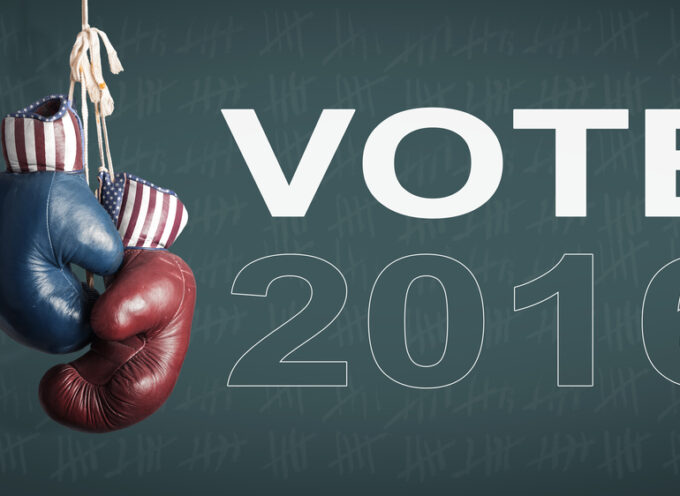Socialism has served as a polarizing phenomenon globally and is emerging to the forefront of our political divide in the United States. It caught the nation’s attention during the 2016 election cycle when Bernie Sanders ran for President openly as a “Democratic socialist.” Not only was the race close, but many experts think Sanders would have won the Democratic nomination if the Clinton family had not manipulated matters behind the scenes.
But Sanders’s views should be recognized as Socialism Lite®, given that he calls himself “socialist capitalist,” a notion which most socialists would consider a contradiction in terms. The more serious socialists in the United States are identified with an activist group called Democratic Socialists of America (DSA). With its stated intention to get rid of capitalism (for being “oppressive”) and abolish the Senate (because it is “unrepresentative”), and with its membership having increased seven-fold since 2015, the DSA should not be ignored by American citizens.
Neither should socialist ideology be ignored. But what is “socialism” and why should we resist its emergence as an economic and political force in the United States?
Many Varieties of Socialism
There are, in fact, a number of varieties of socialism. Each variety emphasizes material equality and communal property ownership, but each does so in its own way.
Most varieties of socialism are macro-level varieties that want nationwide revolutions, although there are versions that take their socialism on the local or personal levels. Some varieties preach sudden and even violent overthrow of capitalism, while others seek a gradual and peaceful approach to undermining capitalism. Some versions, like Sanders’, don’t wish to do away with capitalism at all. Some varieties claim to be based on social science and scientific approaches to history, while other varieties are more cultic in nature.
In the midst of this diversity, the unifying factors are always material equality and communal property ownership. Although these factors are economic, their realization is directly tied to political agendas.
In this post, we will focus on the most famous and widespread version of socialism—Marxism. Marxist socialism has exercised an enormous influence over some of the world’s superpowers and over hundreds of millions of people. Perhaps more so than the other political ideologies, Marxist socialism manifests more obviously as an all-encompassing worldview. But like every other political ideology, when given the ultimate allegiance it demands, it is exposed for the false religion that it is.
Marxist Socialism
Karl Marx (1818–1883) believed that economic factors were the most determinative factors in any society. He argued that world history can be summarized by a series of economic struggles, as people came to grips with economic realities and treated each other well (or poorly) based on those realities. In his famous book, The Communist Manifesto, written with Friedrich Engels, Marx wrote, “The history of all hitherto existing society is the history of class struggles, [contests between] freeman and slave, patrician and plebeian, lord and serf, guild-master and journeyman, in a word, oppressor and oppressed….” Marx believed that humanity had evolved in stages economically—from hunter-gatherer societies, to slave-based societies, to medieval feudalism, to modern capitalism. And in his mind, capitalism needed to evolve into socialism.
Marx criticized capitalism by arguing that it undermined national identities and cultural distinctives, because it encouraged people to clamor for wealth rather than honoring those traditional identities and distinctives. Most importantly, he argued that capitalism dehumanized humans by alienating them from their labor. In his view, capitalist economies valued money and wealth acquisition more than they valued their workers. Capitalism, he argued, tended to treat workers as mere business expenses rather than as human beings. With wealth as the unquestioned center of capitalism, Marx felt that people became faceless machines to be manipulated, replaced, or eliminated.
In response to the evils of capitalism, Marx believed that workers of the world should (and would) eventually overthrow capitalism. Capitalism was a doomed system, on the cusp of collapse—a collapse that Marx intended to hasten. When that happened, Marx foresaw workers abolishing private property, and eventually abolishing the state itself.
Socialism, however, was only a temporary stage for Marx on the way to an even better economic system—communism. Marx envisioned a day when his socialism (with state ownership of property) would be replaced by communism (in which the state would no longer exist). As history reminds us, Marx’s wishes were never fulfilled. In fact, the opposite quite tragically occurred: Marxist socialism, in every instance, has created bigger and more intrusive governments than ever before. Much like liberalism, what began as an attempt to minimize state power led inherently to an expansion of state power.
Marxist Socialism as False Religion
It bears mentioning, especially in our capitalistic context, that Marxist socialism is not entirely bad. No idolatrous ideology is, or even (by definition) can be. Any and every ideology latches on to a good aspect of God’s creation but wrongly elevates it to the status of deity and twists it toward wrong ends. An ideology composed solely of evil would not exist, because evil is only and ever a derivation of good. Satan cannot create; he can only distort and disfigure.
In the case of Marxist socialism, the good was Marx’s commendable desire to do away with poverty. He not only saw, but deeply felt the devastation poverty brings. He understood intuitively that poverty casts a long shadow, not merely in a lack of physical resources, but in the psychology and culture of those mired in it. Marx and his wife Jenny struggled with poverty themselves in the 1850s, a time in which they saw three of their six children die. Even those who disagree with Marx’s project should recognize that his theoretical work was rooted in personal compassion and a desire for humanity to flourish.
However, Marxist socialism, with most other versions of socialism, is not an appropriate alternative to the excesses of capitalism. Beginning with the commendable desire for material equality and communal ownership of property, socialism goes too far, extending communal ownership beyond its normative limits. In other words, it transforms material equality into a deity.
Thus, this otherwise anodyne goal becomes a beast whose tentacles reach past the public square and into every sphere of life, including the arts and sciences, business and entrepreneurship, education and scholarship, and even home and family life. Socialism offers a critique of society that becomes inherently totalizing (including every sphere of culture) and radical (seeking to reconstruct from the roots up).
Marxism, like the world religions, provides a comprehensive way of viewing the world, of interpreting various social and cultural phenomena. It identifies one aspect of society, economically-based class struggle, and demonizes it as the overriding evil corrupting life in this world. And if class struggle is the devil, Marxism is god, the only viable route to “salvation.”
What makes Marxism particularly persistent is its full-bodied eschatology. As David Koyzis notes, most non-Marxist forms of socialism never provided a clear enough view of the societal end goal. They merely encouraged society to work hard to achieve a socialist state. But Marx promised that socialism would win the day. In his mind, socialism was better than competing economic theories or religions because history was on its side.
Koyzis writes:
This then is the primary appeal of the Marxian vision: much as Scripture teaches the ultimate victory of Jesus Christ over his enemies and the reign of the righteous over the new earth in the kingdom of God, so also does Marxism promise an eschatological consummation of human history.
Additionally, as Koyzis notes, Marx provides a type of ecclesiology. For Marx, a person’s primary community is economic class (not family, church, nation, or state). In his plan, the “redeemed community” would be one in which such class divisions have been erased. As a false religion, Marxism’s salvation comes from within history, is ushered in by socialist humanity, and will eventuate in a redeemed community. Or so it was hoped.
Negative Consequences of Marxist Socialism
The Marxist project has been shown to be bankrupt by its own benchmark—the course of history. Marxist socialism did not win the day, because Marxism is an idolatrous ideology. It elevated one aspect of creational life over all others, and even over God himself. Thus it is no surprise that it also subverts human flourishing.
One of the clearest examples of Marxism’s dead-ends is its desire to abolish private property. Owning property is closely tied to freedom and liberty—which is why property ownership arises so often in political theory. And when, as in Marxism, the government takes public ownership of most property, it reduces our liberty and freedom as citizens. Your property is no longer yours; the rules for that property, then, are dictated from without.
Another example is Marxist socialism’s disastrous effect on the economy. The economy cannot be centrally planned, as Marxists have attempted to do, in an effective manner. The economist Ludwig von Mises is well known for demonstrating that (1) economic calculation is necessary for economic activity, (2) pricing is necessary for economic calculation, and (3) a free market is necessary for pricing. The Soviet version of Marxist socialism provides a tragic illustration of the deleterious effects of a centrally planned economy.
Prices were determined not by supply and demand, but artificially by the government. Officials in the capital determined everything from the prices of milk in Moscow, to the price of tractors in the farms outside of Kazan, to the price of heart surgeries in the hospitals of Leningrad. The result was that certain major incentives toward creativity and excellence in one’s work disappeared.
With no financial reward for innovation or hard work, innovation and hard work were scarce. After all, if heart surgeons get paid the same as street sweepers, then the men and women who have the potential to make breakthrough discoveries in heart surgery might never have the motivation to go through many years of medical school or to work the 60–70 hours per week that world-renowned heart surgeons work. The overall effect is that the culture stays flat or declines rather than progressing and making breakthroughs. The larger the economy, the more devastating the decline.
A final criticism, and a very serious one, is that socialist forms of government are inevitably more coercive than democratic capitalist forms. Like other ideologies, socialism worships a jealous god. The idol of economic equality eventually demands that anybody or anything that gets in its way should be sacrificed on the altar. The Soviet experiment is illustrative, though it is by no means the only example, as the Communist Party increasingly used systematic terror to try to usher in the Communist utopia by force. Systematic terror was not only possible, but easy, because socialism had already put nearly all power in the government’s hands. It is no accident that most versions of 20th century socialism were authoritarian or totalitarian.
Conclusion
An increasing number of Americans today find some version of socialism attractive. A new Gallup poll reveals that 57% of Democrats are favorable toward socialism. The socialist vision for material equality is grand—even utopian. Yet, untethered from a biblical framework, “equality” becomes an idol and a weapon in the hands of an increasingly strong and oppressive state.
Indeed, no idol can bear the weight of our eschatological hopes and dreams. Thus, if we wish to see members of every social sector, ethnic heritage, and economic class flourish together in a roughly equal manner, it will not be through the implementation of socialist ideology. It will only come when something greater—Someone greater—is on the throne. And in the meantime, in this time before Christ returns, we will need to work through other more realistic means to seek the common good and flourishing of our nation.
[A version of this essay was first published on the website of the Ethics & Religious Liberty Commission.]
Subscribe
Never miss a post! Have all new posts delivered straight to your inbox.








Bruce, this article is GREAT. I learned a lot and will share some of it. Blessings
Great article, as far as it goes. Marxian socialism is as bad as you say, and more–a wolf in sheep’s clothing–and has resulted in some of the greatest oppression in human history. A problem with socialism in general
is the size of the government apparatus required to administer it, and the opportunities for corruption it generates. But when a formerly more egalitarian society is rotting out into an oligarchy, and lawmakers are bought and sold, people will look for something better. Not many Americans endorse Marxism, but a great number might be drawn to Bernie Sanders’ brand of bread-and-butter democratic socialism. As a retired federal employee, I enjoy single-payer healthcare, and I love it. If a government can offer K-12 free public education, why can’t it offer a few more free years of college or vocational skills training? None of these programs involve idolatry. Hasn’t “Christian socialism” been an important movement within European politics? What do the Democratic and Republican parties have to offer Americans any more? Aren’t they merely two faces of the same plugged nickel, as I like to put it?
I DIDNT APPRECIATE THE LACK OF BIBLE VERSES 🙁
Thank you for taking time to comment. In my last few books, I made arguments from specific verses to show the Bible’s statements about the acquisition, use, and love of wealth. But in this article, I made an argument from a theological framework showing that socialism is a false religion. And there aren’t any Bible verses that speak directly to socialism.